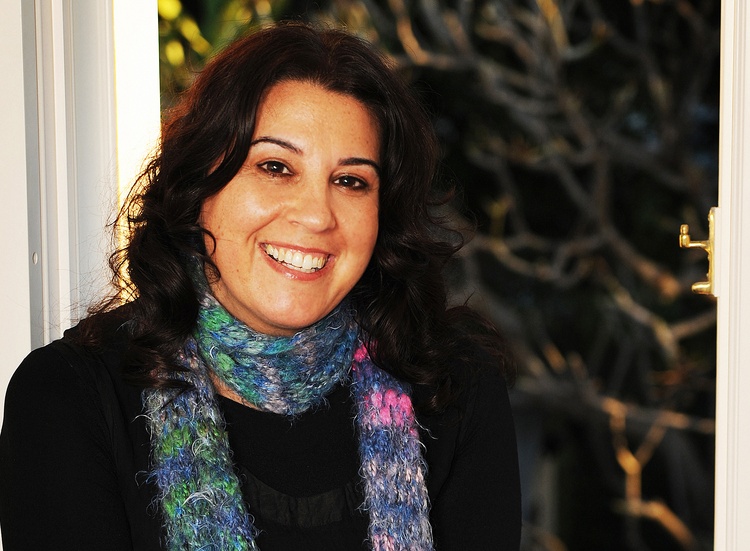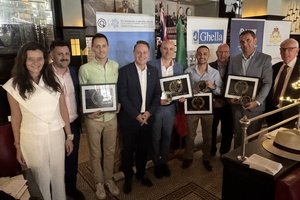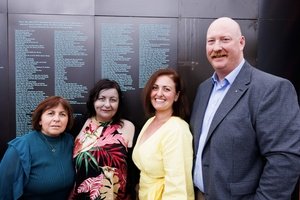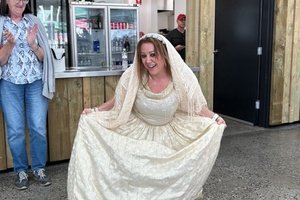With a gentle touch, she seeks to shed light on the darkest corners and cracks of the human experience.
It’s never forced and never fake.
Melina Marchetta, one of Australia’s most beloved writers, best known for her iconic novel Looking for Alibrandi, is back to entertain young readers with the literary series What Zola did on ....
Loosely inspired by her dynamic family life, the seven books of the saga – one for each day of the week – are written for children aged six to eight.
They feature a young girl, her mother and nonna, her cousin Alessandro, a vegetable garden and two little dogs, accompanied by colourful illustrations by Deb Hudson.
The first book, What Zola did on Monday, introduces readers to the family, who have Italian roots and live on a street full of diversity.
In some ways, the characters reflect Marchetta’s own family, including her eight-year-old daughter Bianca.
“I feel as if the adventures of Zola are very similar to the adventures of Bianca,” Marchetta says.
“She’s a character who wants to do the right thing, but a lot of times she ends up doing the wrong thing... however, she always makes up for it.
“My mother is very passionate about her garden and the book has a lot of that passion she has for growing things.
“Sadly, although I’d started this series early last year, my father passed away last year; while the book doesn’t mention death, you are very much aware that Zola and Alessandro loved their nonno and that he’s not there.
“As an adult, you understand that the grandfather has passed away, and maybe as a child, it’s one of those discussions you’d have with a parent if you’re reading it together.”
A writer, teacher and author of acclaimed novels such as Looking for Alibrandi, which has become a classic of Australian literature, and Saving Francesca, Sydney-born Marchetta is very familiar with the emotional universe that her pen outlines, and each time it focuses on the physical and emotional growth of Italo-Australian youth.
Raised in a family with Sicilian roots, Marchetta says her school life was full of ups and downs.
Due to learning difficulties in her early years, she faced numerous obstacles in primary school when it came to learning to read, which she overcame with the help of her mother.
Her lack of confidence in the academic world, however, prompted her to leave school at the age of 15; she later took a course at a business school, which led her to a job, first at a bank and then at a travel agency.
Her confidence in her abilities allowed her to return to her studies when she was 25 years old and felt ready to do so.
“It was very difficult for my parents to accept that I’d be leaving school at the end of Year 10, but they allowed me to,” she says.
“I’m one of those people who, if I do something when I’m not ready, it’s not going to work for me.
“I’d worked for almost 10 years and I’d started writing Looking for Alibrandi after having returned from Italy for the first time.
“By the time I was around 24 years old, I knew the book was going to be published and I remember thinking that if I was smart enough to write a novel, I was smart enough to go to university.”
While the famous protagonist of Looking for Alibrandi is described as an “outcast” of society, both for her Italian heritage and for the fact that her mother was unmarried, Marchetta says that writing the novel was one of the best things she’s ever done.
“I understood my culture a lot better because when I was growing up I felt as if I was trapped in the middle of two cultures and I didn’t know how to express where I belonged,” she says.
“Writing that book really worked it out for me, and I realised that I belong to both.”
The voices of Marchetta’s female characters are always compelling and fresh, while their strength endures in their unusually penetrating and persuasive characterisations.
Friendships, rivalries, romance, rebellion and, above all, Italian culture and traditions, also return in her latest literary series for children.
Each page is always transformed into a rich exploration of growth and identity.
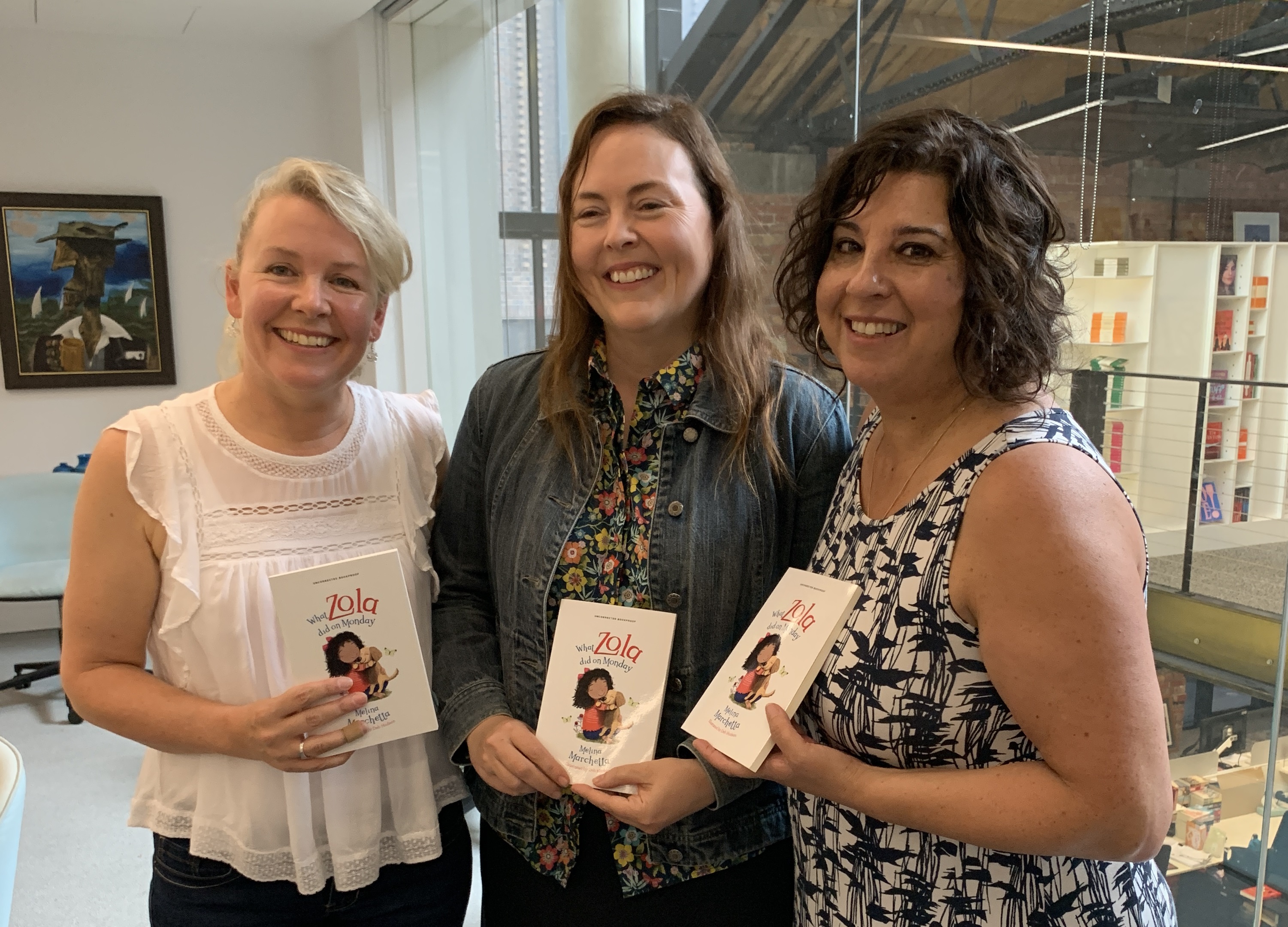
Left to right: Illustrator Deb Hudson, editor of What Zola did on ..., Amy Thomas, and author Melina Marchetta
Marchetta is the product of migration and believes cultural representation in our society is paramount.
“If I were asked in Australia what my nationality was, I’d know what they were asking and I’d say Italian, but if I were in Europe and someone asked the same question, I’d say I’m Australian,” she says.
“I think that sometimes our media is incredibly ‘white’ and I feel as if that culture does dominate when it comes to the representation of people in this country.”
Marchetta adds that her family is a reflection of diversity in this country – something that wasn’t always easy.
“We grew up in a very matriarchal household and we’ve always had very outspoken women in our family,” she says.
“My parents were very strict: we were only allowed to hang out with our cousins, but it was the same for the boys and the girls.
“We weren’t allowed to do things because there was not only a fear that something would happen to us, but also a fear that people would talk about us.
“In the ‘70s, diversity wasn’t celebrated and you were the ‘other’.”
Winner of the AFI Award, the Film Critics Circle of Australia Award and the Independent Film Award for the best screenplay for the film adaptation of her first novel, and the New South Wales Premier’s Literary Award, today Marchetta has her hands full in her intense role as full-time writer and mother.
The recent lockdown has led to new challenges, especially in her attempt to stay connected with the community and assist her daughter with the difficult task of remote learning.

